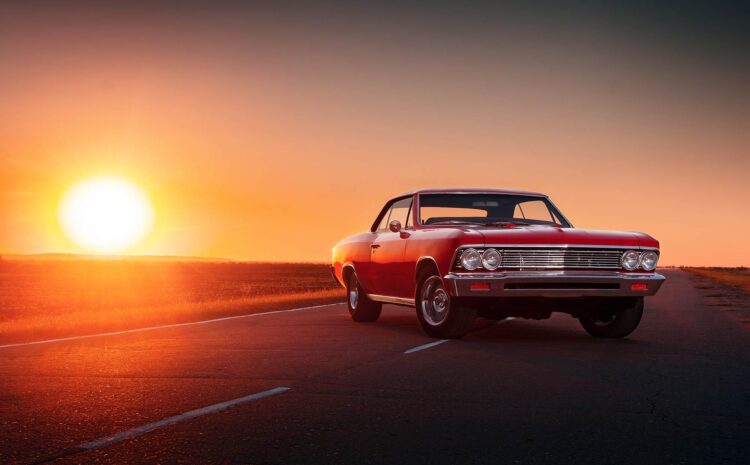
Classical car insurance vs Car insurance: What is the difference?
Traditional auto insurance is typically for newer and older cars driven regularly, unlike classic car policies that cover collector vehicles which are generally used less often. Therefore, premium costs for your “daily driver” will be significantly higher than what you would pay to insure a vintage automobile due to the increased risks associated with frequent driving.
For passionate car collectors, experienced drivers, and gearheads alike – it should come as no surprise that your classic vehicle requires a different type of auto insurance than what would usually suffice for regular cars. Regular policies will simply not provide the necessary coverage to protect antique or collectible automobiles – so be sure to look out for those key differences when you’re searching for a suitable policy! Let’s dive into precisely how these two types of auto insurances diverge from each other.
What Is Classic Car Insurance?
Motor enthusiasts and car collectors need not worry – classic car insurance was designed just for them! With policies that provide plentiful coverage, you’re covered in case of damages. And the best part? Classic plans tend to be more reasonably priced than standard auto policy premiums. This is due to the fact that your regular vehicles typically incur higher risks from frequent driving; whereas collector models are often kept out of harm’s way.
It’s essential to take into account that the price of your collector car insurance is determined through different companies. Quite a few providers specialize in classic vehicle coverage, but most traditional insurers will give you policies too. But if you go with an organization experienced in collector car protection, then not only can they get more affordable prices for your auto, but also superior coverage options as well – after all, they are experts!
How Much Does Classic Car Insurance Cost?
As mentioned earlier, insuring your vintage car should be cheaper than traditional vehicle insurance. This is because the consumer must insure their daily driver on a standard policy and usually drives their classic car less often. Furthermore, this collector’s item is driven only for special occasions – meaning it will likely be driven with more caution and care compared to other vehicles.
Furthermore, collector vehicles are driven on the roads much less often so they’re far less prone to car crashes. This translates into fewer claims for injuries and third-party collisions that you may be liable for. Ultimately, your classic vehicle insurance will likely be more affordable than a normal auto policy – in some cases up to 40% cheaper! With the right coverage options in place, you can rest assured knowing that you’re getting the most value out of your collectors car insurance policy compared to conventional automobile protection plans.
Differences Between Classic & Regular Car Insurance
Beyond cost, there are many factors that set classic car insurance apart from regular auto insurance. Your settlement value for a total loss claim, maximum vehicle value, as well as your vehicle eligibility and usage guidelines will all be regarded differently when you acquire an auto policy for your classic ride. Therefore, it is important to understand the nuances between the two plans before making any decisions.
- Eligible Vehicles:If you own a classic, vintage or antique car that is 25 years old and over, Classic Car insurance offers specialized coverage for your vehicle. Regular auto policies are designed to cover new cars prone to depreciation as well as older vehicles driven on a daily basis. We also provide collector/exotic automobile protection with either increasing values or stable prices.
- Value for a Total Loss Claim: Unlike regular car insurance, Agreed Value classic car coverage allows you to choose your vehicle’s value when the policy is written. That way, should a total loss occur, the maximum payment for a claim will already be set in stone at that predetermined amount. In contrast to this type of certainty provided by an agreed upon valuation upfront with collectible cars, normal auto insurance fails to provide such assurance and instead bases any potential claims off of the actual cash value on the date of accident – meaning how much it was worth then and there as opposed what was initially listed beforehand.
- Maximum Vehicle Value Limit: When insuring a classic car, the agreed upon value can be far higher than what you paid when originally buying it. Plus, modifications or renovations to your automobile could further raise its worth. Alternatively, with standard auto insurance policies, the maximum vehicle valuation is based on similar Year / Make / Model Vehicles’ current market prices–with alterations in fair market value determined by mileage level and upgrades of said vehicles.
- Vehicle Usage: If you are the proud owner of a classic car, but only use it for short drives and occasional shows, chances are you need classic car insurance. To qualify for such coverage, however, most companies require that customers have another vehicle insured on standard auto insurance policy to serve as their daily driver. Additionally keep in mind that there is likely a defined annual mileage limit included with your classic car policy—so don’t make it into your primary mode of commuter transport! Even if your vintage set of wheels is more than 25 years old though, normal automobile policies should still cover them provided they’re primarily driven vehicles.
Is Your Car Eligible for Classic Car Insurance?
If you’re wondering if your car qualifies for classic car insurance, there are only a few requirements that have to be met. Your vehicle must:
- Be 25 years or older
- Have a different daily driver associated with it
- Accrue no more than an annual mileage of 12k miles
- Plus, possess an impeccable driving record.
Additionally, your car must be functional to qualify for classic car insurance. This type of policy is quite expansive and can accommodate various old-fashioned vehicles such as antique farm tractors, vintage hot rods, classic military cars and more.

